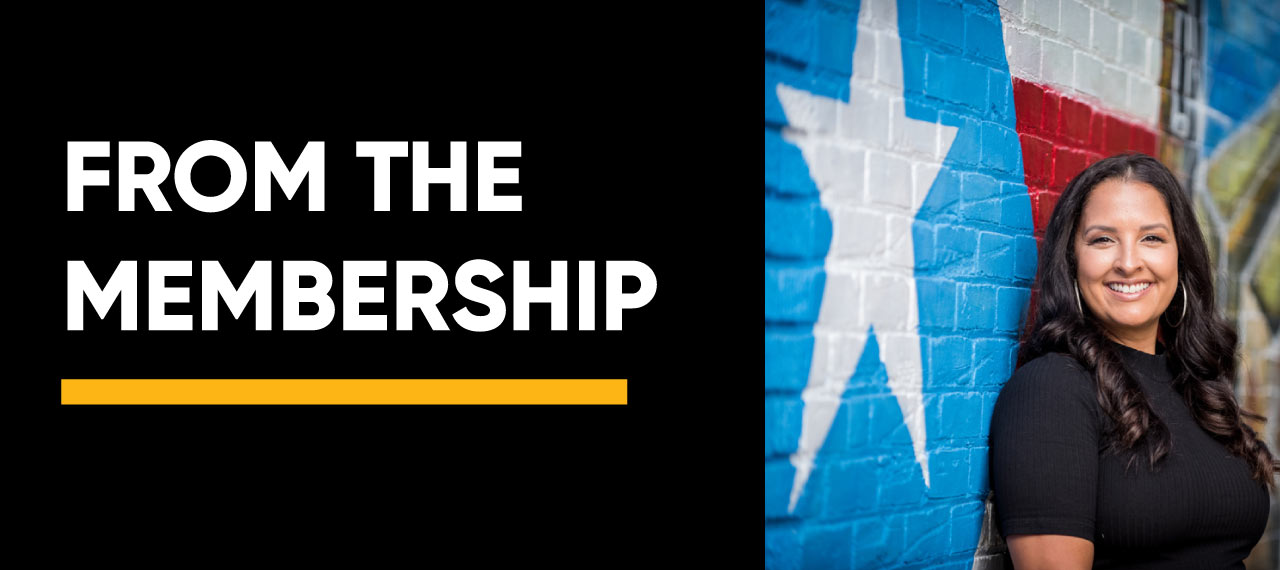
I was raised in a family that always spoke their mind. We were never afraid to say what we wanted or needed to say. Until the age of 20, my environment inside and outside my home was all-inclusive. My experiences and relationships were authentic and raw. This environment was all I knew; it was my culture.
After turning 20, I started my career in the A/E/C industries. I was not at all prepared for the culture shock during that first week. The environment was very different than what I was used to, but I was really excited about the position. So, I tucked away my discomfort and got to work.
The job was interesting and challenging. I knew I could be good at this and continued to learn the business and make friends along the way. Everything seemed to be going well.
Then the microaggressions started; or at the time, I would have most likely referred to it as passive-aggressive behavior. My name was rarely pronounced correctly and when I would correct people, they would tell me, “Well, that’s not the normal way it’s pronounced.” I was told I needed to go to college because of the way I spoke. Even comments were made about my big hoop earrings, such as, “Those are rather large for the workplace.”
The discomfort I tucked away that first week and almost forgot about, jumped right back into plain sight. Then the realization set in: I’m not happy here–and I don’t feel like I belong.
I left that company after three years and went to a larger company, believing and hoping that the experience in my previous position was something that wouldn’t happen again. Besides, I had prepared myself for the culture shock, and I also felt like it was an isolated incident.
Unfortunately, I was wrong.
The microaggressions, blatant discrimination, and passive-aggressive behavior continued. I experienced it personally and watched it happen to other people.
I knew immediately that if I wanted to escape these situations, I needed to change who I was at work to feel comfortable there. Change the way you talk. Do not wear your big hoop earrings. Do not correct people when they say your name incorrectly. Be the work version of Alicia.
But this isn’t fair. This isn’t me.
As much as I struggled with what to do in order to not jeopardize my job or career, an experience with a coworker forced me to make a decision that would change the way I carry myself as a professional. The offensive and inappropriate comments that were directed toward me from a coworker in a proposal kick-off meeting pushed me into a space I never thought I could be in the workplace. My reaction was such a reflex that I didn’t realize the implications for having a verbal confrontation at work.
I stood up for myself that day, and it could have very well cost me my job. Luckily, it did not.
That was the last day I was the work version of Alicia.
Over the last 15 years, I have fought for respect, for a seat at the table, for my voice to be heard, for my work to be appreciated, for marketing departments to be valued, for my teammates to be respected, and for other professionals to be respected and know their worth.
I’m a Puerto Rican woman who wears big hoop earrings, talks slang, and demands the same treatment and respect as every other person seated at the table. These characteristics are just part of who I am. I’m also a professional with 17 years of marketing and business development experience, a wife, and a mother. My voice matters, and I make sure of it every day.
This is a privilege I worked very hard for and a privilege many people don’t have. The risk of losing your job because you want to be accepted for who you are is a risk many people are not willing to take.
Imagine working your entire career feeling this way.
There are millions of professionals, including small disadvantaged businesses, dealing with microaggressions, biases, and discrimination on a daily basis. They struggle with this very issue of “what version of myself should I be today” because they’ve been reminded that they’re not accepted for who they are. And it’s not just at the workplace; it’s at holiday parties, weddings, golf outings, networking events, the grocery store, etc. It’s everywhere, and it’s a burden many of us carry every single day.
We struggle because we’re in a space where we are different. We’re the minority. The microaggressions are inevitable and demeaning.
We want it to STOP.
Through the struggle, find the strength to stand up for yourself. The fear of taking a stand is real, but the effects of not doing so will ultimately define who you are as a professional and how others treat you.
This article was written by Alicia Mojica Washington, director of marketing and JEDI at HRP Associates, Inc. Alicia is a past-president of SMPS Connecticut and leads their Diversity and Inclusion Task Force, a board member and membership chair of the Construction Institute, and the Communication’s Chair for the Connecticut Chapter of the National Organization of Minority Architects. Alicia also serves her local community as a volunteer at the Boys and Girls Club and the City’s Diversity Council. She can be reached at alicia.washington@hrpassociates.com.







